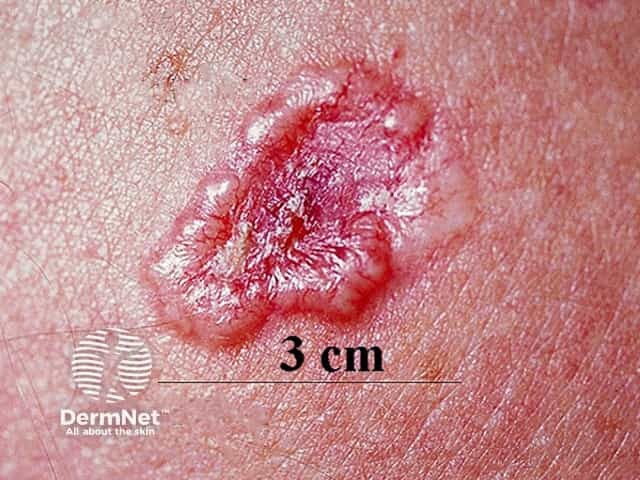Basal cell carcinoma (BCC) is the most common type of skin cancer, originating from the basal cells in the epidermis, which is the outermost layer of the skin. It is primarily caused by prolonged exposure to ultraviolet (UV) radiation from the sun or tanning beds. BCC typically appears as a pearly or waxy bump, flat scar-like lesion, or a reddish patch, often on sun-exposed areas such as the face, ears, neck, and scalp. While BCC rarely metastasizes or spreads to other parts of the body, it can cause significant local damage if left untreated, leading to disfigurement.
Diagnosis of BCC is usually made through a physical examination and confirmed via a skin biopsy. Treatment options vary based on the size, location, and type of BCC but often include surgical excision, Mohs micrographic surgery, cryotherapy, and topical medications. The prognosis for basal cell carcinoma is generally favorable, especially when detected early, with a high cure rate. Preventative measures, including regular skin checks, sun protection, and avoiding tanning beds, are crucial in reducing the risk of developing BCC.

